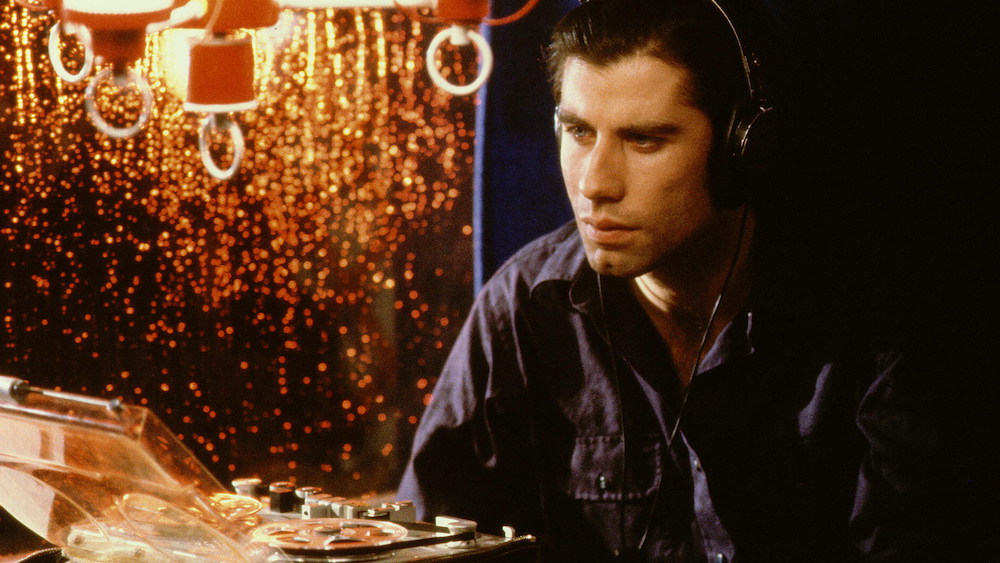

Set at a conference for “thought leaders,” “The Way We Speak” is an ambitious drama that puts its cameras on a handful of characters wading into an arena of intellectual combat while dealing with emotional, psychological and in some cases physical challenges that threaten to unravel them. The performances are uniformly excellent. That all the key players (save for the lead) are not yet in-demand names is even more impressive. They carry themselves like stars (or endlessly reliable character actors) even if we don’t know them.
Faith versus Reason is the main attraction: a middle-aged writer named Simon Harrington (Patrick Fabian of “Better Call Saul”) who is finally starting to have a breakthrough is brought in to have a series of debates over three days with another rationalist, his longtime best friend and colleague George Rossi (Ricco DiStefano). When Rossi bows out due to health problems, he ends up squaring off against a last-minute replacement, Sarah Clawson (Kailey Rhodes), a young Christian essayist whose latest book has sold over a million copies.
Offstage, Simon has an unsteady and sometimes heated relationship with his wife Claire (Diana Coconubo, possibly the cast’s MVP, at least in terms of the role’s degree of difficulty). She’s a famed medical researcher who has been in cancer treatment for years and is a rock for Simon even though her body is betraying her and she’s worried about survival. Simon, already a prickly sort and a drinker as well, begins to crack while worrying about his sick friend and sick wife and his own career ambitions, increasingly viewing Sarah not just as his opponent but his enemy, creating a ripple effect of ill-will that impacts other characters and makes the conference increasingly tense.
Written and directed by Ian Ebright in his feature debut, “The Way We Speak” has already been compared to the work of Aaron Sorkin. The comparison fits not just because nearly every single person in the story is fantastically, at times theatrically, eloquent, but because the structure, look, and overall tone channel the underappreciated “Steve Jobs,” a Sorkin-penned, Danny Boyle-directed movie set around three product launches. As it turns out, this movie has a lot of the virtues of a Sorkin joint, in particular a gift for snappy patter and keen insight into the dynamics of relationships between smart, accomplished, ambitious people. However, it also has some of the flaws, chiefly an overconfidence in its ability to confront and articulate the big ideas and timeless themes that are believed to be hallmarks of Important Drama.
The content of Simon and Sarah’s onstage clashes is so basic as to seem beneath an institution lauded in the screenplay as a gathering place for the world’s brightest minds. The debates don’t go much deeper than an intro class. “How can you justify a righteous deity that allows so much suffering to play out without direct intervention?” is one of the questions posed by Simon, in a self-satisfied tone (like so much of what he offers) that suggests he believes this will be a knockout blow. When it comes to cinematically representing the substance of the faith and reason dialectic, Ingmar Bergman or Terrence Malick this film ain’t.
Maybe we’re not supposed to think that the verbal combatants standing at those lecterns are as profound as they think they are? That’s a more charitable reading. Another is that the main event onstage is a pretext to externalize what happens internally when accomplished, ego-driven people get stuck under a spotlight for a few days while coping with intensely demanding personal matters (Sarah’s got her own issues, somewhat related to what Simon’s going through) and start to crack and behave poorly.
This is where the film most impresses. Ebright is ruthless, in the best way, when it comes to showing how people can be selfish and thoughtless in personal and romantic relationships, even when they think they’re behaving in an exemplary or at least decent manner.
Simon is already right on the edge of assholery when we first meet him. Fabian’s demeanor and vocal style in the part are reminiscent of Michael Douglas in some of his classic ‘80s and ‘90s charismatic heel roles. But he digs deeper into self-sabotaging unpleasantness and weakness than Douglas ever did, and as the film goes along, the character becomes increasingly difficult to excuse or tolerate, because he’s pretty clearly losing it and has no real sense of the damage he’s inflicting on himself and those around him (including the hosts of the conference).
Sarah doesn’t emerge from the story pristine either, but one can at least make the case that extended exposure to Simon brought out bad elements in her personality (or perhaps suppressed anxiety/misery related to her own marriage) that might not have manifested until she showed up at the conference.
The most sympathetic character is Claire, who’s married to a seething mass of resentment in the form of a man. Simon, we learn, has been in her shadow for decades (supporting her, in his mind, emotionally if not financially) and has resentments that he should know better than to admit, mainly about the fact that his wife’s cancer is getting in the way of his long-deferred dream of being a famous writer. The movie is most compelling and spot-on observant when it’s deflating Simon. When he gets drunk at dinner, Claire heads out early and drafts a waiter to watch over him until he’s ready to leave. Simon asks his minder, “Are you familiar with futurism? Because I’m kinda famous for it.” “Oh,” the waiter says politely. “Right on!”



